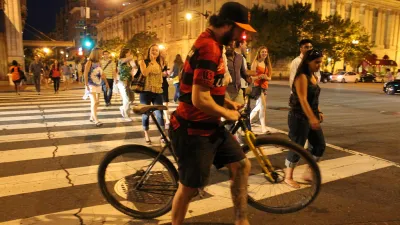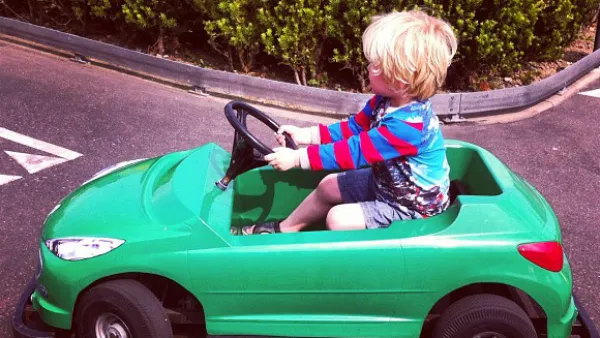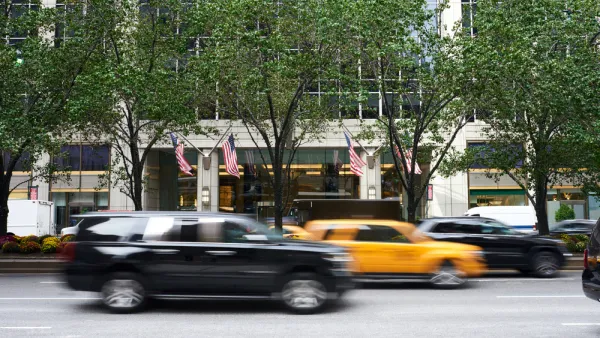Millennials are less likely to get driver's licenses, they tend to take fewer, shorter car trips, and they use alternative modes of transportation more than their predecessors. The question for the ages is why.

Emily Badger follows up on the growing body of evidence that Millennials are driving less to ask why that is. For instance: "Are millennial driving habits a byproduct of the weak economy? (If you have no job to go to, chances are you drive less.) Or do they signal deep and permanent shifts in the American relationship to automobiles?"
These questions are the subject of a report by U.S. Public Interest Research Group and the Frontier Group released on October 14, 2014, titled "Millennials in Motion: Changing Travel Habits of Young Americans and the Implications for Public Policy."
After acknowledging that these questions won't be answered for at least several years, Badger explains that the report finds that "the case is growing stronger for a major and lasting change in how today's youngest would-be drivers — and those to follow them — use cars." Moreover, the study argues that "it's time to rethink how we subsidize, encourage and invest in car use."
The article goes on to break down the technology argument (i.e., "maybe they simply chose not to [to drive], precisely because they now have more and better alternatives"), the economy argument (i.e., "long-term socioeonomic shifts underway that will likely continue to affect car use even after the economy fully recovers")., and the cultural argument (i.e., "the underlying cultural preferences of millennials are changing).
FULL STORY: The many reasons millennials are shunning cars

National Parks Layoffs Will Cause Communities to Lose Billions
Thousands of essential park workers were laid off this week, just before the busy spring break season.

Retro-silient?: America’s First “Eco-burb,” The Woodlands Turns 50
A master-planned community north of Houston offers lessons on green infrastructure and resilient design, but falls short of its founder’s lofty affordability and walkability goals.

Delivering for America Plan Will Downgrade Mail Service in at Least 49.5 Percent of Zip Codes
Republican and Democrat lawmakers criticize the plan for its disproportionate negative impact on rural communities.

Test News Post 1
This is a summary

Test News Headline 46
Test for the image on the front page.

Balancing Bombs and Butterflies: How the National Guard Protects a Rare Species
The National Guard at Fort Indiantown Gap uses GIS technology and land management strategies to balance military training with conservation efforts, ensuring the survival of the rare eastern regal fritillary butterfly.
Urban Design for Planners 1: Software Tools
This six-course series explores essential urban design concepts using open source software and equips planners with the tools they need to participate fully in the urban design process.
Planning for Universal Design
Learn the tools for implementing Universal Design in planning regulations.
EMC Planning Group, Inc.
Planetizen
Planetizen
Mpact (formerly Rail~Volution)
Great Falls Development Authority, Inc.
HUDs Office of Policy Development and Research
NYU Wagner Graduate School of Public Service




























